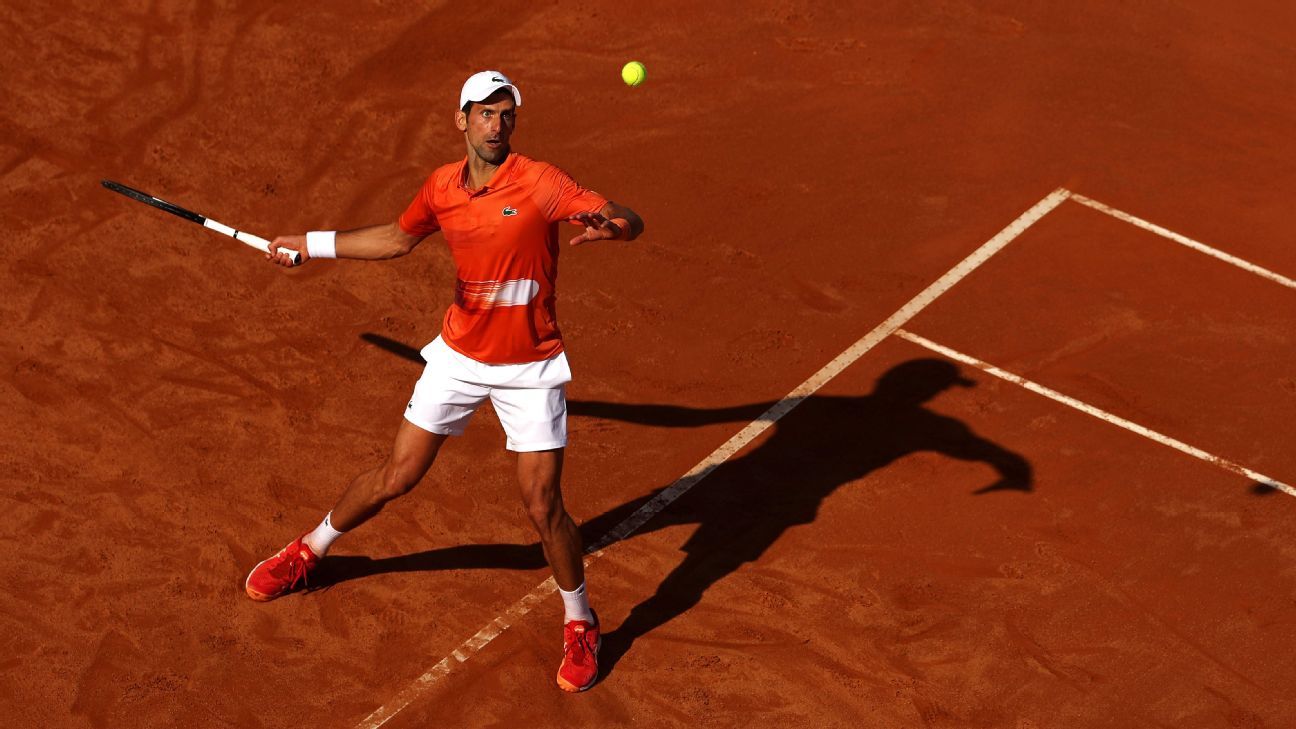Products You May Like
Novak Djokovic insists he holds no grudges against Australia and is still keen to return for a crack at more tennis history there next year.
The world No. 1, who was deported from the country following a global drama over his vaccination status before this year’s Australian Open, also talked of his delight that the refugees he shared a detention centre with briefly have now all been released.
But Djokovic revealed that, though he’d heard about the change of government in the country, he still didn’t know whether his visa for Australia would be reinstated.
Djokovic was detained briefly at Melbourne’s Park hotel detention centre in January before being deported on the eve of the Australian Open when the federal appeal court upheld the immigration minister’s decision to cancel his visa.
Judges rejected the COVID-unvaccinated tennis star’s appeal after the Australian government had cancelled his visa on “health and good order” grounds.
After his 6-3, 6-3, 6-2 victory over Aljaz Bedene at the French Open on Friday, Djokovic gave his thoughts for the first time since the election about his prospects of returning to the country next year to have a crack at a record-extending 10th Open title.
“In terms of the government (change), yes, I heard the news, but I don’t know anything about whether my visa is going to be reinstated or whether I’m going to be allowed to come back to Australia,” said the 20-time grand slam champion.
“I would like to. I would like to go there and play Australian Open.
“I don’t hold any grudges.
“Look, you know, it was what it was. If I have an opportunity to go back to Australia and play a place where I made the biggest success in my career in grand slams, I would love to come back. Let’s see how it goes.”
Hearing for the first time that the 20 refugees he’d shared the detention centre with had all been released last month, Djokovic said: “I’m obviously very happy about it, because I know that it was very difficult for them, particularly for the ones that stayed there for nine years.
“You know, I stayed there for a week, and I can’t imagine how they felt for nine years.
“They haven’t done anything wrong, and they are asylum seekers and stayed for nine years.
“That’s something I obviously did not understand why – but if I brought some light to that situation in a positive way for them, for this to happen, then of course I’m very happy, because they got another chance in different country.”
He referred to the story of 24-year-old refugee Mehdi Ali – it was a pseudonym to protect his family members in Iran – whose nine-year detention in Melbourne became a global cause celebre.
“I don’t know whether some of them stayed in Australia or not, but I know that … Ali, right? Yeah, I know he went to the United States. I saw that, saw his pictures. I was very happy that he’s happy, that he’s getting to live free,” said Djokovic.
“We underestimate freedom. Until you actually live something like that and see what the circumstances are, then you don’t really have an idea of what it feels like when somebody strips away the freedom from you.”
